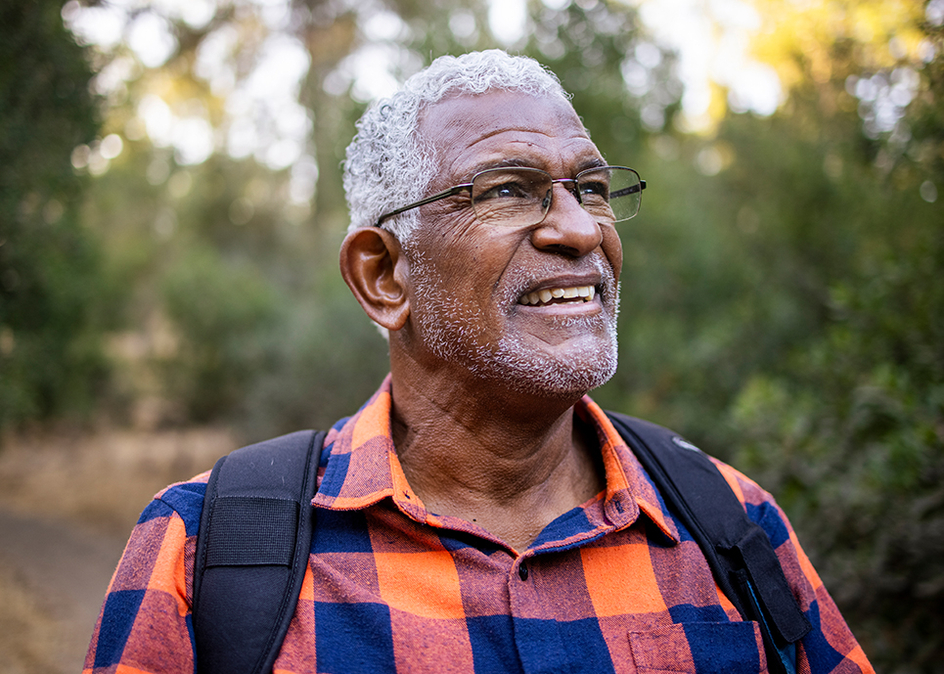
What do attending your first Raptors basketball game at age 100, strolling through Stanley Park with friends and packing gift baskets for people in need have in common? Well, they’re all activities that can improve your self-esteem and mental health, and they’ve all been done by Amica residents. If you want to feel positive and regain self-confidence as you age, we’ve got the research on how to make it happen, from trying new things to getting active with supportive pals to volunteering and more.
Seniors and self confidence
The Oxford Dictionary defines self-confidence as “a feeling of trust in one’s abilities, qualities and judgment.” So how do seniors rate? One U.S. study including 3,617 participants found that self-esteem and confidence tend to decline after age 60, as people begin to retire and experience health issues and other losses. To compound things, people with low self-esteem tend to have worse long term health outcomes than those with high self-esteem. Recognizing that pattern and connection is the first step to correcting negative thoughts and behaviours and feeling more confident, as outlined in the tips below.
Tip 1: Challenge yourself to move more
Coaches know that setting small goals and achieving them creates a sense of mastery, and medical advice confirms that seniors who exercise live healthier lives. Having confidence in your ability to walk around the block each day with a friend or do a stretch class at your local seniors’ centre once a week, for instance, will increase your activity levels and mood and build your self-esteem.
At Amica Lions Gate, for example, residents like to stroll through Stanley Park together and enjoy breathtaking views while getting their steps in. Amica Life Enrichment Coordinators organize fun and social exercises for residents with mobility issues, too, such as seated chair dancing.
Tip 2: Learn from senior role models
When you consider that 80-year-old singer Paul Anka is still touring and 84-year-old Jane Fonda is still performing and doing activism, it reminds you that ageist notions of being “too old” to do something are unfounded. Yet research shows that exposure to ageist stereotypes affects self-esteem. So, focus on seniors who are staying busy. At Amica, that includes 92-year-old George at Amica Riverside, who swims for 30 minutes each morning.
Tip 3: Help someone in need
Volunteering increases feelings of value and purpose that benefit mind and body, according to psychologists who study senior self-esteem. That confidence boost – along with a genuine desire to give back – fuels Amica residents, too. Read Kindness begins at home to learn how Amica London residents knit goods for Alzheimer’s patients at St. Joseph’s Hospital, for instance, while Amica West Vancouver residents collect donations for a local animal shelter.
Tip 4: Fake it until you make it
Even if you have no plans day to day, mental health experts say that dressing well and practicing good hygiene will give you a lift.
Tip 5: Try something new
Break out of your comfort zone. Whether you learn to crochet, join a bowling league or take a painting class for the first time, you’ll watch your skills improve and grow — and your confidence bloom. (Plus, learning is one of 16 ways for seniors to feel good and boost their brain health.) Spending time on learning improves self-esteem and keeps life interesting. At Amica On The Gorge, for example, residents recently learned drumming on National Indigenous Peoples Day. At Amica Little Lake, meanwhile, resident Myrna teaches other residents to play piano on the Memory Care floor, where she lives. (Discover why picking up new skills benefits seniors with Alzheimer’s and dementia.)
Tip 6: Talk to your doctor
If you feel a lack of confidence, are persistently sad or have lost interest in things that you used to enjoy, such as social situations, these could be signs of a mood disorder or depression. Read 10 warning signs of depression in seniors to better understand how accessing treatment through a health professional can make a difference.
Tip 7: Spend time with friends
The data is in: A recent meta-analysis of 52 studies including 47,000 participants proved conclusively that positive social relationships raise self-esteem. When you share your wisdom with friends, receive support during a tough time and laugh and interact with buddies, it builds confidence and your health. (Find out why in our recent article, 8 reasons why friendships are important for seniors.)
Senior living makes socializing, staying active and learning new things effortless. Whether it’s Amica Edgemont Village residents identifying seabirds and bonding at a picnic at Barnet Marine Park, or seniors sipping on Mai Tais and listening to live music at Amica Dundas, retirement living makes it easy to feel good about yourself and about life. So why not give it a try?
Book a virtual or in-person tour to find out what it’s like to enjoy living on your own terms in an elegant Amica residence with outstanding dining, amenities, activities, senior care and safety measures.
